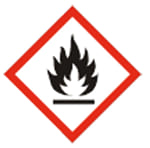Zinc, represented by the chemical symbol Zn, is a low-melting-point metal that belongs to Group 12 of the periodic table. It possesses excellent malleability, wear resistance, corrosion resistance, and forgeability, along with superior mechanical properties at room temperature. Zinc can also form high-performance alloys with a variety of other metals.
However, zinc is not only an important metallic element but also plays a crucial role in electronic technology. Its conductivity makes it an ideal material for manufacturing batteries and other electronic devices. Although its conductivity is not as high as that of copper or silver, its cost-effectiveness and favorable electrochemical properties ensure it has a significant place in the field of technology.
Is zinc a good conductor of electricity?
Zinc is a relatively good conductor of electricity due to metallic bonding. The atoms in zinc have three valence electrons that can move freely within the structure, and this movement of electrons contributes to its good electrical conductivity.
Table 1. The comparison of electrical conductivity between zinc and other metals
Material | Resistivity | Conductivity |
Silver | 6.30×107 | |
Copper | 1.68×10-8 | 5.96×107 |
Gold | 2.44×10-8 | 4.10×107 |
Aluminum | 2.82×10-8 | 3.5×107 |
Calcium | 3.36×10-8 | 2.98×107 |
5.60×10-8 | 1.79×107 | |
Zinc | 5.90×10-8 | 1.69×107 |
Nickel | 6.99×10-8 | 1.43×107 |
How can we improve the electrical conductivity of zinc?
- Development of new alloys: Research and develop new zinc-based alloys by adding other metallic elements to improve conductivity.
- Surface treatment techniques: Apply plating, spraying, or other surface treatment methods to enhance the conductivity of the zinc surface.
- Nanotechnology: Use nanotechnology to improve the microstructure of zinc, thereby increasing its conductivity.
What are the applications of zinc in modern technology?
Battery technology and electronic devices
- Zinc-carbon batteries were among the first commercial dry batteries, offering higher energy density at a lower cost than previous cells.
- Zinc-ion batteries are considered safer than lithium-ion batteries as they use water-based chemistry, avoiding the fire hazards that can occur with lithium-ion batteries in electric vehicle (EV) battery packs.
- In electronic devices, applications of zinc include using zinc oxide as a dielectric for insulation, capacitors, and potentially other devices.
3D printing additive manufacturing
- Spherical Zinc (Zn) Powder is widely used in metal additive manufacturing processes, such as selective laser melting (SLM) or electron beam melting (EBM).
The safety data sheet for Zinc Powder
Classification This chemical is considered hazardous by the 2012 OSHA Hazard Communication Standard (29 CFR 1910.1200) Substances/mixtures which, in contact with water, emit Category 1 flammable gases Pyrophoric solids Category 1 Combustible dust Yes Label Elements Signal Word Danger Hazard Statements May form combustible dust concentrations in the air In contact with water releases flammable gases which may ignite spontaneously Catches fire spontaneously if exposed to air
Precautionary Statements Prevention Keep away from heat/sparks/open flames/hot surfaces. - No smoking Do not allow contact with air Wear protective gloves/protective clothing/eye protection/face protection Keep away from any possible contact with water, because of violent reactions and possible flash fire Handle under inert gas. Protect from moisture Skin Brush off loose particles from the skin. Immerse in cool water/wrap with wet bandages Fire In case of fire: Use fire-fighting equipment on basis class D for extinction Dry sand Storage Store under an inert atmosphere Store in a dry place. Store in a closed container Store in a well-ventilated place. Keep the container tightly closed Disposal Dispose of contents/container to an approved waste disposal plant Hazards not otherwise classified (HNOC) Very toxic to aquatic life with long-lasting effects |
Zinc shows immense potential for applications in the realm of emerging technologies, particularly in advancing sustainable energy solutions. For example, as an economical choice for grid energy storage systems, zinc-based batteries aid in the widespread adoption of renewable energy. Environmentally, the production and recycling of zinc are significant for reducing the consumption of natural resources and minimizing environmental impact. Economically, the cost-effectiveness and recyclability of zinc play a key role in reducing the overall costs of energy solutions and supporting sustainable economic growth.
Heeger Materials is a reputable supplier offering top-notch Refractory Metals and Spherical Powder products at competitive prices, which are widely used in interventional medicine. If you're interested, feel free to reach out to us at [email protected] for a quote, and we guarantee a response within 24 hours.



